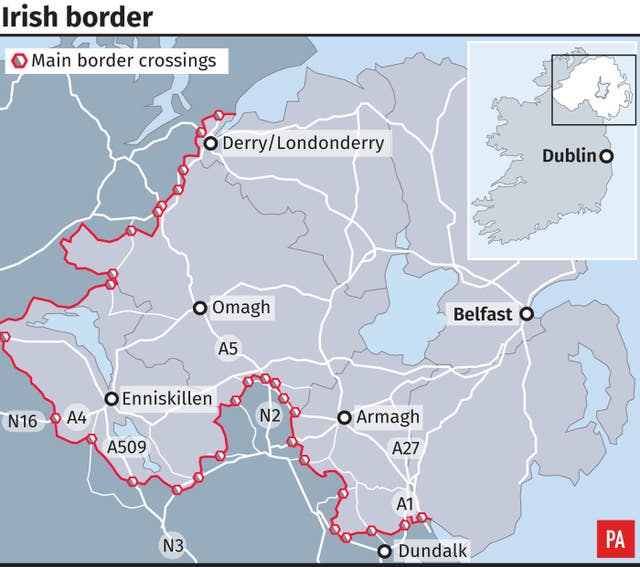In an effort to dislodge the parliamentary “logjam”, Theresa May has entered into Brexit talks with Jeremy Corbyn.
But the Labour leader will be aiming to convince the Prime Minister to rub out one of her red lines and renew membership of the EU customs union.
Once largely only mentioned by policy enthusiasts and campaigners, this agreement is now the subject of rowdy debate.
Here the Press Association answers your burning questions on the subject:
– First things first, what exactly is a customs union?
You’re in safe hands doing business in the EU.The #CustomsUnion turns 50 this year. Learn more about what Customs Union does for your business → https://t.co/YnmaX6YGGF #50CU pic.twitter.com/0wCIuX7VJr
— European Commission ?? (@EU_Commission) August 12, 2018
To make trade more seamless, countries within the union agree not to impose customs checks on each other’s goods or to charge tariffs – taxes on imports and exports.
The EU’s customs union includes all member states, plus Monaco. Goods within these countries can travel around unimpeded.
But under the EU’s rules, members of the customs union can only negotiate as a whole with the rest of the world, and cannot choose to negotiate tariffs with outsiders.
– Could the UK strike trade deals while in the customs union?
Yes. But…
The Prime Minister has pledged to leave the customs union, arguing it would hinder the UK’s ability to strike deals.
Because the UK would not be able to negotiate tariffs, it could only make deals on other areas, such as regulation.
Stefan Enchelmaier, a professor of European law at Oxford University, agreed that this leaves Britain with little bargaining power.
But he added: “The UK would be free to allow in chlorinated chicken and hormone beef.”
These are two infamous examples of goods that could be imported from the US if the UK relaxes regulations post-Brexit. They are currently banned in the EU.
Prof Enchelmaier also pointed to other difficulties in negotiating trade deals, saying the EU has faced difficulties with India because India wanted certain levels of freedom of movement along with trade.
“These concerns are not going to go away when the UK faces India,” he said.
– Does the customs union solve the hard border issue in Ireland?

– Who said what before the referendum?
The customs union was not at the forefront of the conversation by any means in the run-up to the vote.
As London mayor, Boris Johnson had been an advocate even of the single market, which would mean continued freedom of movement.
“Myself, I think it would be better to stay in the single market, to have the benefits of a customs union, the benefits of completely untrammelled free trade, rights of establishment, all those kinds of things, those are very important for British business,” the Tory told LBC in May 2013.
But now the former foreign secretary describes such an arrangement very differently while criticising Mrs May’s deal.
“Not only are we prevented from doing proper free trade deals, but we must endure the utter humiliation of watching the EU commission negotiate access to UK markets – with no UK say on the deals,” he wrote in The Telegraph last month.
– What’s next?
Businesses, are you preparing for #Brexit?
All you need to know about customs duties, import and export licences, customs authorisations, VAT and excise rules: https://t.co/2ntBJ4U0PE#Prepare4Brexit pic.twitter.com/5rI393ERn7
— EU Tax & Customs ?? (@EU_Taxud) April 4, 2019
Mrs May has sought the Labour leader’s assistance to “break the logjam” in the House of Commons in order to get a deal through. With three failed attempts on her current plan, a compromise is necessary to win Mr Corbyn’s support.
Labour backs a customs union, as well as a second referendum on any deal – two of the Prime Minister’s red lines that she did not want to cross.
But a Number 10 source said: “Unless there is compromise on both sides, it is unlikely we can find a way forward.”
However, any new deal would need support from within her ranks, too.
So far, Mrs May has seen two ministerial resignations since announcing the talks and has received terse warnings from hardline Brexiteers.






